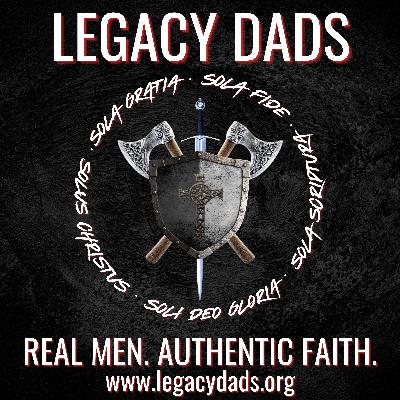When Truth Becomes a Feeling: Moral Relativism and Legacy Dads
Description
🎧 Episode Description
In this episode, we dive into the latest research from Barna on how Americans view truth and morality. The findings reveal a culture increasingly skeptical of moral absolutes and more reliant on personal feelings and pluralistic sources of truth. As dads who want to pass on a legacy of clarity, conviction, and faith, we'll explore what this means for our families, our faith, and how we model truth for the next generation.
🧭 Key Segments & Topics
1. Setting the Scene – What the Research Says
-
The survey shows ≈ 74% of adults say they trust their feelings over facts when discerning moral truth. George Barna+2George Barna+2
-
Only a minority believe in moral absolutes; many believe moral truth is relative to circumstances. George Barna+3Barna Group+3George Barna+3
-
A large portion of Americans accept the idea that "different moral truth-views can all be right." George Barna+1
-
Even among Christian-identified groups, significant percentages reject or doubt absolute moral truth. George Barna+2George Barna+2
2. Why This Matters for Dads & Families
-
When truth becomes something you feel rather than something you know or are rooted in, it affects how we model decision-making for our kids.
-
Legacy is about more than providing; it's about imparting a worldview. If that worldview is unstable or shifting with culture, the next generation inherits confusion.
-
The article warns: societies without shared, stable moral references risk becoming fragmented, morally ambiguous or anchored only in emotion. George Barna+1
-
As fathers, we're gatekeepers for our homes: of truth, character, and generational faith. So what do we do when our culture says "each person decides their truth"?
3. Practical Applications – What You Can Do
-
Anchor in a stable source: Encourage family conversations about why you believe what you believe — not just what.
-
Model decision-making: Show your children how you arrive at right vs wrong. Is it "how I feel" or "what is true / what does Scripture say / what is right"?
-
Discuss pluralism & relativism honestly: If our kids are hearing that all truth-views are valid, we need to equip them to think critically and biblically.
-
Create opportunities for reflection: Ask your children (depending on age) "What basis did you use to decide that was okay or not okay?"
-
Teach the big story: Legacy is long-term. Morality isn't just a list of do's and don'ts, but a story of a God who is truth, and lives that flow from that.
4. Conversation Starters for Your Family
-
"What do you believe defines right and wrong?"
-
"Have you ever changed your mind about something because of how you felt? What did you base that on?"
-
"Why do you think some people believe truth depends on the situation?"
-
"If someone says 'that's true for you but not for me,' how would you respond?"
-
"What difference does it make if truth is absolute vs relative?"
5. Legacy Dad Challenge
This week: Pick one moral/ethical decision you face (big or small). Walk your child(ren) through how you came to your decision: What basis did you use? Was it simply how you felt? Or did you consult Scripture, your conscience, parental wisdom, cultural norms? After making the decision, revisit it: "Was that the wisest basis? Would I make the same decision next time with what I now know?"
🔍 Recommended Further Reading & Resources
-
The original article on Barna's site: "Survey Finds Americans See Many Sources of Truth—and Reject Moral Absolutes." George Barna
-
Barna's deeper breakdown: "Americans Possess Contradictory and Unbiblical Views about Moral Truth." George Barna
-
"The End of Absolutes: America's New Moral Code" (Barna archive). <a class="flex h-4.5 overflow-






